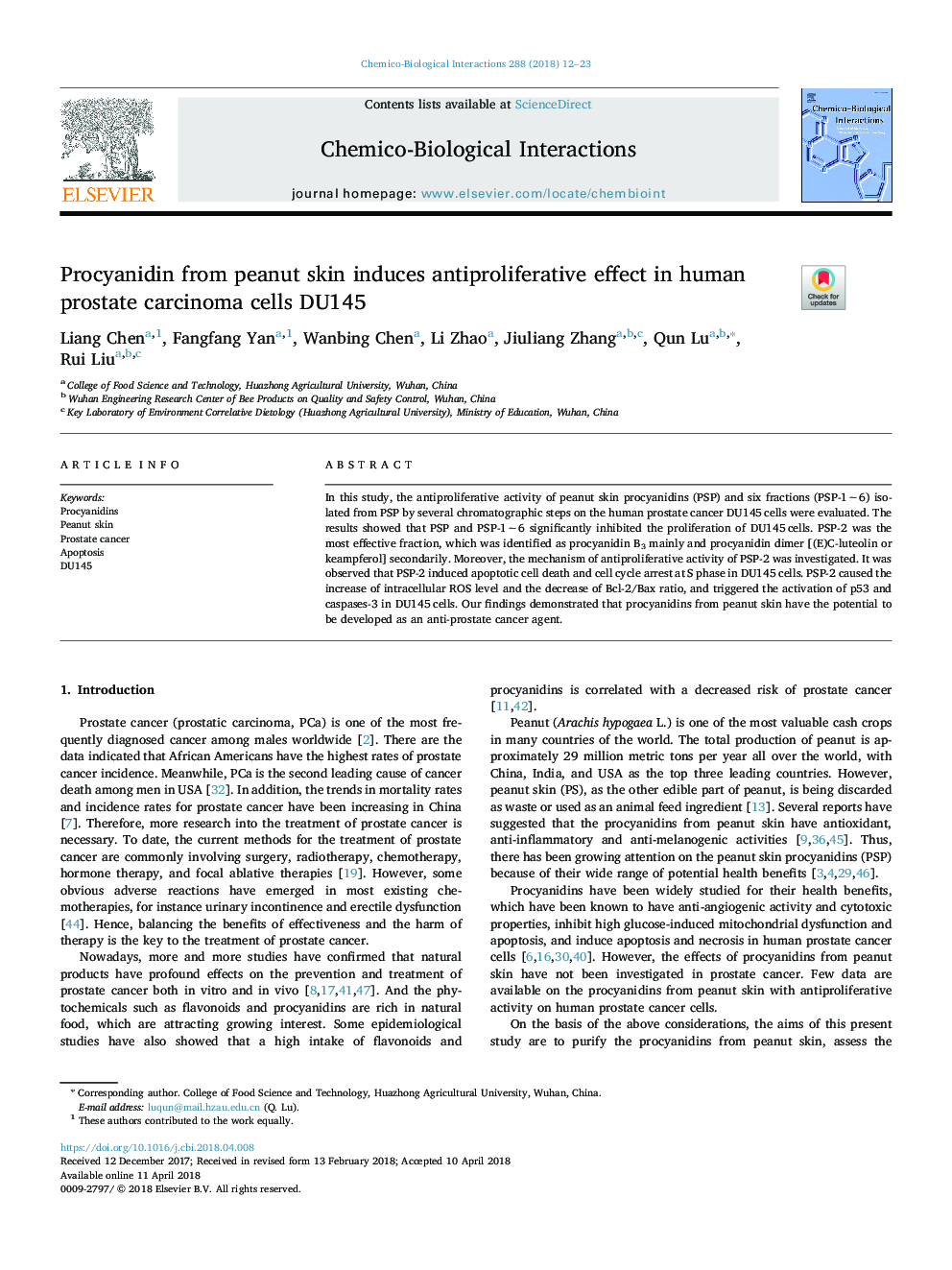| Article ID | Journal | Published Year | Pages | File Type |
|---|---|---|---|---|
| 8544716 | Chemico-Biological Interactions | 2018 | 12 Pages |
Abstract
In this study, the antiproliferative activity of peanut skin procyanidins (PSP) and six fractions (PSP-1â¼6) isolated from PSP by several chromatographic steps on the human prostate cancer DU145â¯cells were evaluated. The results showed that PSP and PSP-1â¼6 significantly inhibited the proliferation of DU145â¯cells. PSP-2 was the most effective fraction, which was identified as procyanidin B3 mainly and procyanidin dimer [(E)C-luteolin or keampferol] secondarily. Moreover, the mechanism of antiproliferative activity of PSP-2 was investigated. It was observed that PSP-2 induced apoptotic cell death and cell cycle arrest at S phase in DU145â¯cells. PSP-2 caused the increase of intracellular ROS level and the decrease of Bcl-2/Bax ratio, and triggered the activation of p53 and caspases-3 in DU145â¯cells. Our findings demonstrated that procyanidins from peanut skin have the potential to be developed as an anti-prostate cancer agent.
Related Topics
Life Sciences
Environmental Science
Health, Toxicology and Mutagenesis
Authors
Liang Chen, Fangfang Yan, Wanbing Chen, Li Zhao, Jiuliang Zhang, Qun Lu, Rui Liu,
